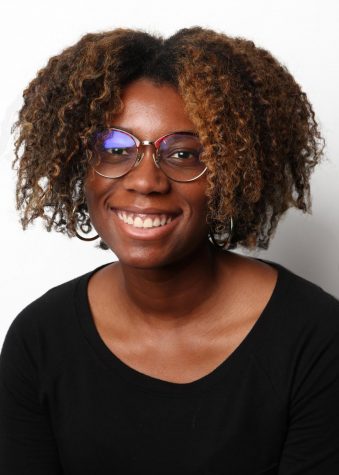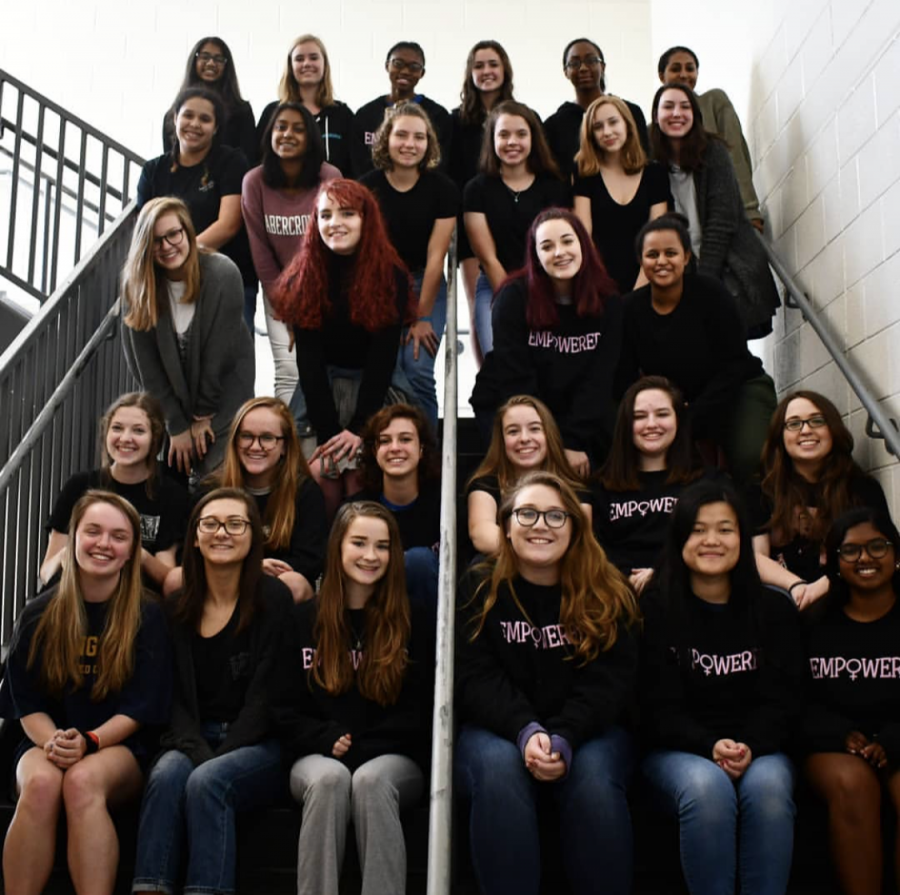Permitted Politics in Public Schools
The First Amendment guarantees the right to assemble, which several partisan and nonpartisan political groups at Chamblee take advantage of. At the same time, both teachers and students have to give up some rights when they enter the school building.
One such example is Chamblee’s Women’s Political Club. Despite the name, the club is open to all interested in discussing issues relating to women in the political sphere. Their intent is to remain nonpartisan.
“Women’s Political is a club that’s oriented around discussion of current events and ongoing debates in America and in the world,” said club president Tiffany McWilliams. “Anyone is welcome to attend our meetings.”
Political events and activities are not without restrictions, though. Women’s Political Club was supposed to have current state senator Sally Harrell come and speak to the club during her campaign, but her visit was canceled.
“Sally Harrell was asked to come speak and I, as the sponsor, will take one hundred percent responsibility that it appears through some county policies that maybe I didn’t follow all of the right steps,” said social studies teacher Jennifer Tinnell. “We initially did cancel Ms. Harrell and she was so kind and understanding.”
Harrell would still like to come and speak to students who are interested in politics at some point.
Tinnell was likely referring to the DeKalb County School District Board Policy Staff Political Activities, which states that school facilities can be used for political activities and by individual candidates, provided that the activities are in compliance with Board Policy KG and do not occur during instructional time.
Teachers also have certain policies they have to follow when they come to school regarding their political rights.
For instance, district employees cannot display any political billboards, pictures, signs, posters, badges, buttons or any other political advertisement at any school facility or on their person during normal business hours or while performing job duties. On the other hand, students can, so long as it does not cause a disturbance.
Political activities that are incorporated in the curriculum are not prohibited, but it can be a challenge for teachers to toe the line between teaching politics and having personal opinions as a private citizen.
“I try not to talk about politics if I can help it because I know it’s a touchy subject,” said social studies teacher Theresa Abernathy. “I know I feel strongly on subjects and people have differing opinions. Sometimes it’s frustrating not being able to voice my personal opinion. I do try to not sway anybody if we talk about politics by just talking about facts.”
According to the staff political activities policy, “employees may express opinions as individuals privately and publicly on political subjects, issues, and candidates. In any public statement, employees are prohibited from exerting or attempting to exert influence by identifying themselves in any manner as employees of the District.”
In short, district employees must make it clear that they are speaking on behalf of themselves and not for the county.
“My goal as a teacher is to teach the facts, but I want my students to understand that there are consequences to our political choice,” said Tinnell. “I try in the beginning of the year to not share my own political views but as the year goes on and my students get a better sense of who I am and my intentions, my goals, and personality, then I feel more comfortable sharing some of my own personal beliefs. But I always preface it, if I say something personal, that that’s how I believe and you can believe however you want. Whatever happening at your house, whatever your parents are teaching you, whatever your religious beliefs are, that’s the beauty of this country.”
Your donation will support the student journalists of Chamblee High School Blue & Gold. Your contribution will allow us to print editions of our work and cover our annual website hosting costs. Currently, we are working to fund a Halloween satire edition.

Camille Crumbley is a senior and staff writer. Outside of journalism, she likes to go to bookstores, listen to music, and watch Netflix. This is her third year on the staff.






